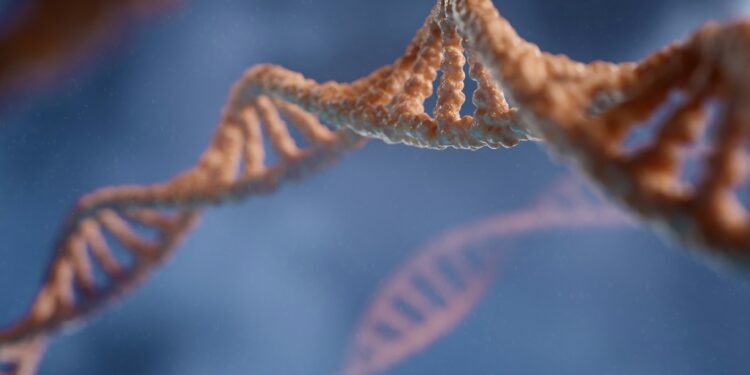There may be a new form of Alzheimer’s.
In a recent study, it has been uncovered that individuals harboring two copies of a gene mutation closely linked to Alzheimer’s disease are at a significantly heightened risk of displaying brain alterations associated with the degenerative condition.
Researchers have pinpointed a singular mutated APOE4 gene as the most potent genetic predisposition for late-onset Alzheimer’s disease.
As detailed in a publication released on May 6 in the journal Nature Medicine, virtually all subjects carrying two copies of the APOE4 gene mutation exhibited escalated levels of Alzheimer’s-related brain changes by the age of 55, contrasting those with a different variant of the APOE gene.
By the age of 65, over 95% of those possessing two APOE4 genes showcased anomalous levels of amyloid protein in their cerebrospinal fluid, with 75% displaying positive amyloid scans. Amyloid beta plaques, a signature characteristic of Alzheimer’s disease, were prevalent in these cases. Dr. Juan Fortea, who heads the Memory Unit at the Neurology Service of the Sant Pau Research Institute in Barcelona, Spain, suggests that possessing two copies of the APOE4 gene may indicate a novel genetic subtype of Alzheimer’s disease.
Dr. Fortea underscored the significance of this discovery in a press release, stating, “While this gene has been identified for over three decades as being associated with a higher risk of developing Alzheimer’s disease, our findings reveal that almost all individuals carrying this duplicated gene develop Alzheimer’s biology.”
He further emphasized, “This is of paramount importance as they represent between 2 and 3% of the population.”
For the study, Dr. Fortea and his team meticulously analyzed data from nearly 3,300 brain donors, including samples from 273 individuals with two copies of the APOE4 gene. Additionally, they scrutinized clinical data from over 10,000 individuals exhibiting signs of Alzheimer’s disease, among them 519 individuals with two copies of APOE4.
Dr. Alberto Lleó, Director of the Neurology Service at the Sant Pau Research Institute, emphasized the implications of these findings, stating, “The data unequivocally demonstrate that having two copies of the APOE4 gene not only escalates the risk but also accelerates the onset of Alzheimer’s, thus underscoring the imperative for tailored preventive strategies.”
Given the high likelihood of individuals testing positive for two copies of APOE4 developing Alzheimer’s, they could serve as prime candidates for clinical trials evaluating targeted preventive and therapeutic interventions, the researchers suggested.

































Discussion about this post